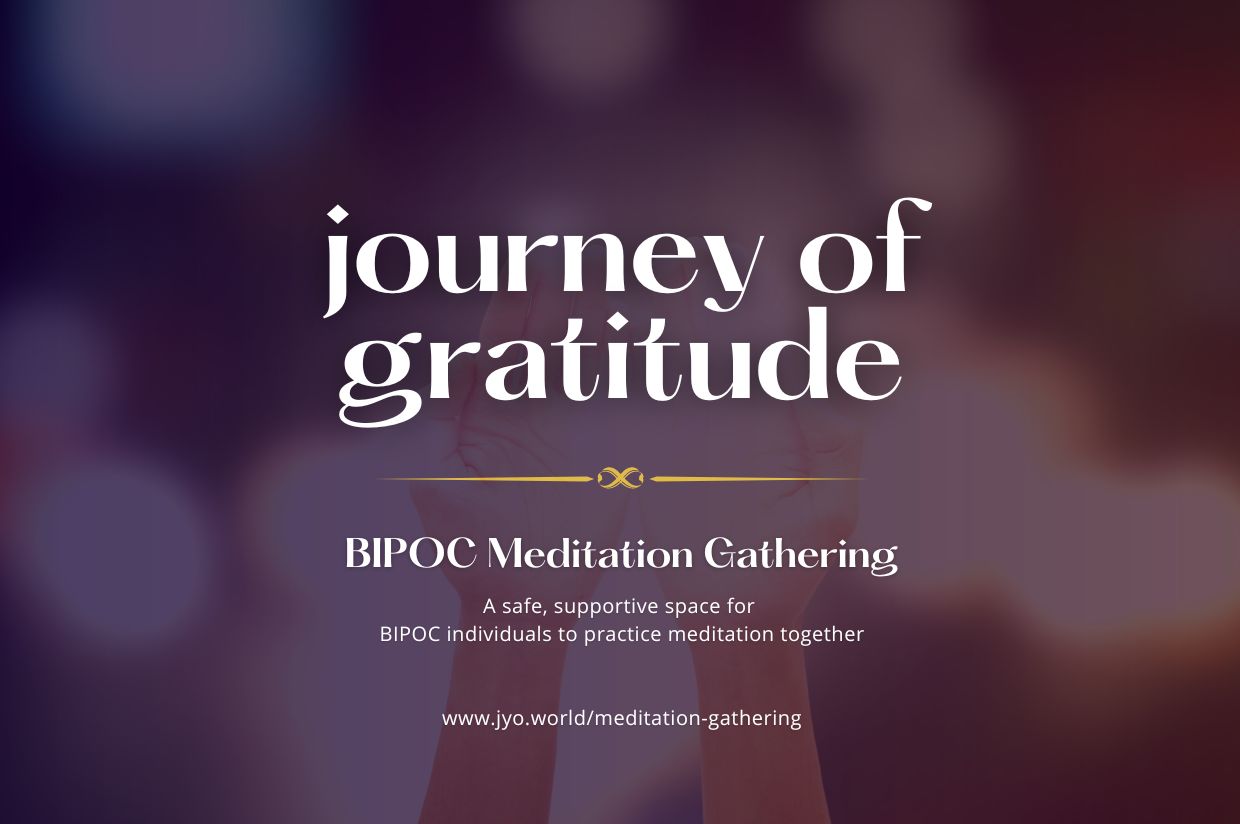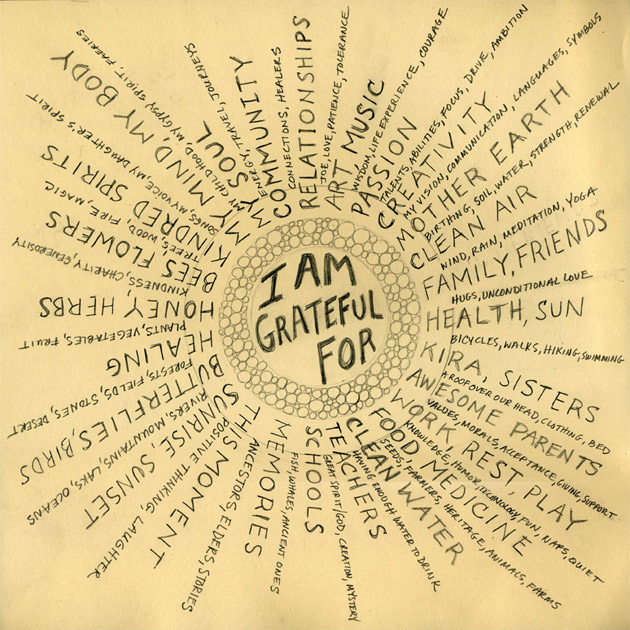The Profound Power of Gratitude: A Journey to Joy and Well-being

In a world often characterized by relentless pursuit, comparison, and a focus on what’s lacking, the simple yet profound practice of gratitude can act as a powerful antidote. More than just saying "thank you," gratitude is a deep and conscious appreciation for the good things in our lives, both big and small. It’s a lens through which we can reframe our experiences, shifting from a deficit mindset to one of abundance and joy. This article delves into the multifaceted nature of gratitude, exploring its benefits, practical applications, and the science that supports its transformative power.
Understanding the Essence of Gratitude
Gratitude is not simply a feeling; it’s a conscious choice. It’s an active process of recognizing and acknowledging the positive aspects of our existence. This can include tangible things like a roof over our heads, nutritious food, and a supportive community, but it also encompasses intangible blessings such as good health, meaningful relationships, and the ability to experience beauty.
At its core, gratitude involves two key elements:
- Recognition: The ability to identify and acknowledge the positive things in our lives. This requires paying attention to the details and noticing the good that often goes unnoticed.
- Appreciation: Feeling a sense of thankfulness and valuing the positive experiences and blessings we have recognized. This goes beyond mere acknowledgment and involves a genuine sense of appreciation and enjoyment.
Gratitude is not about ignoring challenges or pretending that everything is perfect. Rather, it’s about acknowledging the difficulties while simultaneously recognizing the good that exists alongside them. It’s about finding strength in adversity and appreciating the lessons learned and the growth achieved.
The Multifaceted Benefits of Gratitude

The benefits of practicing gratitude extend far beyond a momentary feeling of happiness. Research has consistently demonstrated a wide range of positive outcomes across various aspects of our lives:
-
Improved Mental Health: Gratitude is strongly linked to increased happiness and life satisfaction. It reduces feelings of anxiety, depression, and envy, and promotes a more optimistic outlook on life. By focusing on the positive, gratitude helps to reframe negative thoughts and emotions, leading to a more balanced and resilient mindset. Studies have shown that individuals who regularly practice gratitude report lower levels of stress and a greater sense of well-being.
-
Enhanced Physical Health: Surprisingly, gratitude can even impact our physical health. Studies have found that grateful individuals tend to have lower blood pressure, improved sleep quality, and a stronger immune system. This may be due to the stress-reducing effects of gratitude, as chronic stress can negatively impact various bodily functions. Furthermore, grateful people are more likely to engage in healthy behaviors such as exercise and proper nutrition, contributing to overall well-being.
-
Strengthened Relationships: Expressing gratitude to others strengthens bonds and fosters deeper connections. When we acknowledge and appreciate the efforts of those around us, we create a sense of validation and belonging. Gratitude promotes empathy and compassion, leading to more positive and supportive relationships. Showing appreciation to loved ones, friends, and colleagues can significantly enhance the quality of our interactions and create a more harmonious environment.

-
Increased Resilience: Gratitude can act as a buffer against adversity, helping us to cope with challenging situations and bounce back from setbacks. By focusing on the good things in our lives, we cultivate a sense of hope and optimism, which can be invaluable during difficult times. Gratitude allows us to reframe our perspective, recognizing that even in the midst of hardship, there are still things to be thankful for. This can empower us to persevere and overcome obstacles with greater resilience.
-
Improved Sleep Quality: Studies suggest that practicing gratitude before bed can lead to better sleep quality. By reflecting on the positive aspects of the day, we can quiet the mind and reduce racing thoughts that often interfere with sleep. Gratitude promotes a sense of calm and contentment, making it easier to relax and fall asleep.
-
Increased Self-Esteem: Gratitude can help us appreciate our own strengths and accomplishments, leading to increased self-esteem. By focusing on what we have rather than what we lack, we cultivate a sense of self-worth and confidence. Gratitude allows us to recognize our inherent value and appreciate the unique qualities that make us who we are.
-
Greater Spiritual Connection: For many, gratitude is an integral part of their spiritual practice. It connects us to something larger than ourselves, fostering a sense of awe and wonder at the beauty and complexity of the universe. Gratitude can deepen our appreciation for the interconnectedness of all things and promote a sense of humility and reverence.

Cultivating Gratitude: Practical Techniques
While the benefits of gratitude are clear, it’s not always easy to cultivate this practice in our daily lives. Here are some practical techniques that can help you develop a more grateful mindset:
-
Gratitude Journaling: This is one of the most popular and effective ways to cultivate gratitude. Each day, take a few minutes to write down things you are grateful for. These can be big or small, tangible or intangible. The key is to be specific and to focus on the details. For example, instead of simply writing "I am grateful for my family," you might write "I am grateful for my family’s unwavering support during my recent challenges."
-
Gratitude Letters: Write a letter to someone who has made a positive impact on your life, expressing your gratitude for their kindness and support. Consider reading the letter aloud to them for an even more powerful experience. This act of expressing gratitude can be incredibly rewarding for both the giver and the receiver.
-
Gratitude Visits: If possible, schedule a visit with someone you are grateful for and express your appreciation in person. This allows for a more personal and meaningful connection. The physical presence and heartfelt expression of gratitude can create a lasting impact.
-
Gratitude Affirmations: Start your day with gratitude affirmations, repeating positive statements about the things you are grateful for. This can help to set a positive tone for the day and cultivate a more grateful mindset. For example, you might say "I am grateful for my health and energy," or "I am grateful for the opportunity to learn and grow."
-
Gratitude Walks: Take a walk and consciously notice the beauty and wonder around you. Pay attention to the details of nature, the sounds of the city, and the people you encounter. This can help you appreciate the simple things in life that often go unnoticed.
-
Gratitude Jar: Keep a jar or container and write down things you are grateful for on small pieces of paper. At the end of the week or month, read through the notes and reflect on all the good things in your life.
-
Mindful Appreciation: Practice mindful appreciation by fully engaging your senses when experiencing something positive. Savor the taste of your favorite food, appreciate the beauty of a sunset, or enjoy the warmth of a hug. By fully immersing yourself in the present moment, you can deepen your appreciation for the simple joys of life.
-
Reframe Negative Thoughts: When you find yourself dwelling on negative thoughts, try to reframe them by focusing on the positive aspects of the situation. Ask yourself what you can learn from the experience and what you are grateful for in spite of the challenges.
-
Express Gratitude to Yourself: Don’t forget to express gratitude to yourself for your accomplishments, strengths, and resilience. Acknowledge your efforts and celebrate your successes, no matter how small. Self-compassion and self-gratitude are essential for overall well-being.
The Science Behind Gratitude
While the benefits of gratitude may seem intuitive, they are also supported by scientific research. Studies using brain imaging techniques have shown that practicing gratitude activates areas of the brain associated with reward, pleasure, and social connection. These areas include the ventral tegmental area (VTA), which is a key part of the brain’s reward system, and the prefrontal cortex, which is involved in decision-making and emotional regulation.
Research also suggests that gratitude may increase levels of dopamine and serotonin, neurotransmitters that play a role in mood regulation and happiness. Furthermore, gratitude has been shown to reduce levels of cortisol, the stress hormone, leading to a more relaxed and balanced state.
Neuroplasticity, the brain’s ability to reorganize itself by forming new neural connections, also plays a role in the transformative power of gratitude. By consistently practicing gratitude, we can strengthen the neural pathways associated with positive emotions and weaken those associated with negativity. This can lead to a more permanent shift in our mindset and a greater capacity for experiencing joy and well-being.
Overcoming Obstacles to Gratitude
Despite its numerous benefits, cultivating gratitude can be challenging, particularly in the face of adversity. Here are some common obstacles and strategies for overcoming them:
-
Negativity Bias: Our brains are naturally wired to pay more attention to negative experiences than positive ones. This is known as the negativity bias and it can make it difficult to focus on the good things in our lives. To overcome this bias, consciously make an effort to notice and appreciate the positive aspects of your experiences.
-
Comparison: Comparing ourselves to others can lead to feelings of envy and dissatisfaction. To combat this, focus on your own unique strengths and accomplishments. Remember that everyone’s journey is different and that comparison is the thief of joy.
-
Entitlement: Feeling entitled to certain things can make it difficult to appreciate what we already have. To overcome this, practice gratitude for the basic necessities of life, such as food, shelter, and clean water. Remember that many people around the world are not as fortunate.
-
Difficult Emotions: When we are struggling with difficult emotions such as sadness, anger, or fear, it can be challenging to feel grateful. However, even in the midst of hardship, there are still things to be thankful for. Focus on the small things, such as a supportive friend, a beautiful sunset, or a moment of peace.
-
Lack of Time: Many people feel that they don’t have enough time to practice gratitude. However, even a few minutes each day can make a significant difference. Incorporate gratitude into your daily routine by writing in a gratitude journal while you drink your morning coffee or by expressing gratitude to someone before you go to bed.
FAQ: Frequently Asked Questions about Gratitude
-
Is gratitude just about being positive all the time? No. Gratitude is not about denying negative emotions or pretending that everything is perfect. It’s about acknowledging the difficulties while simultaneously recognizing the good that exists alongside them.
-
Can gratitude really change my life? Yes. Research has consistently demonstrated a wide range of positive outcomes associated with gratitude, including improved mental and physical health, strengthened relationships, and increased resilience.
-
How often should I practice gratitude? The more often you practice gratitude, the greater the benefits you will experience. Aim to incorporate gratitude into your daily routine, even if it’s just for a few minutes each day.
-
What if I don’t feel grateful? It’s okay if you don’t always feel grateful. Sometimes it takes effort to shift your perspective and focus on the positive. Start by identifying one small thing you are grateful for and build from there.
-
Is gratitude a sign of weakness? Absolutely not. Gratitude is a sign of strength and resilience. It takes courage to acknowledge the good in our lives, especially during difficult times.
Conclusion: Embracing Gratitude as a Way of Life
Gratitude is more than just a feeling; it’s a powerful practice that can transform our lives. By consciously recognizing and appreciating the good things in our existence, we can cultivate a more positive mindset, strengthen our relationships, and improve our overall well-being. While cultivating gratitude may require effort and intention, the rewards are well worth the investment. By embracing gratitude as a way of life, we can unlock a deeper sense of joy, contentment, and meaning, and create a more fulfilling and purposeful existence. So, take a moment today to reflect on the blessings in your life and express your gratitude. You might be surprised at the profound impact it has.
